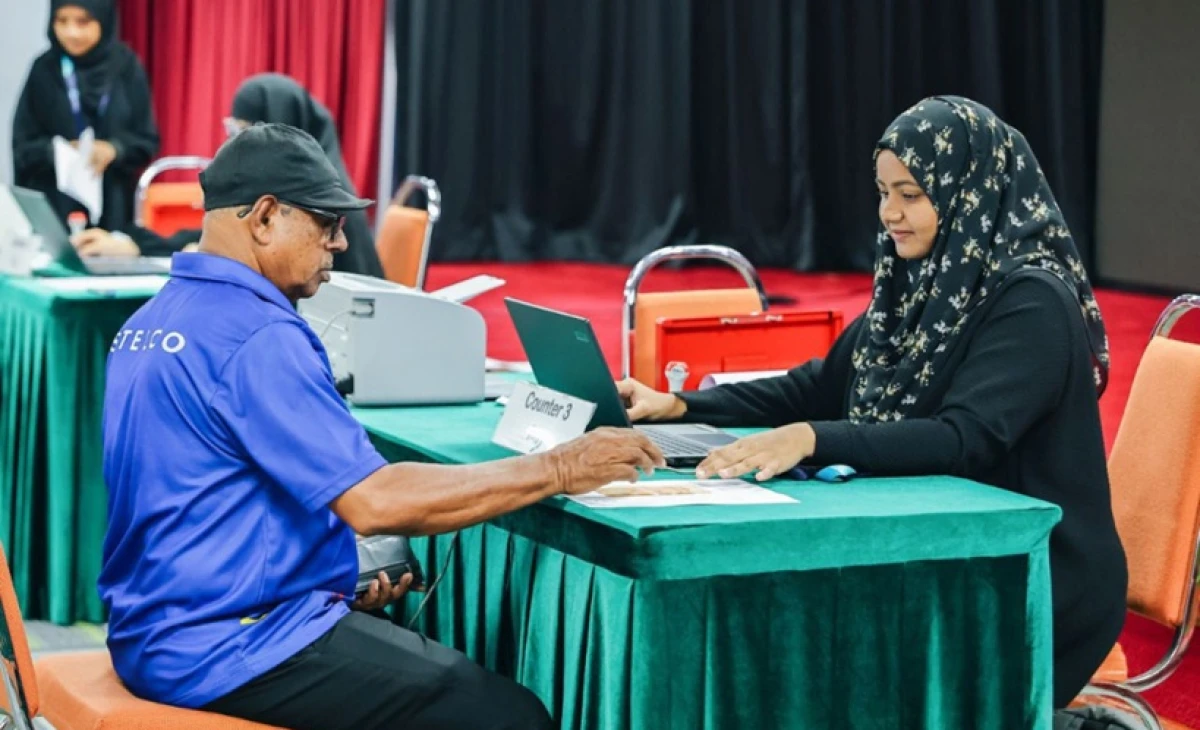Sat, 21 Feb 2026
|DHIVEHI
Bill introduced to enact Zakat Act in a historic first for Maldives
11 Aug 2025
|

Fitr zakat contributions being received Photo: Ministry of Islamic Affairs
In a historic first for the Maldives, a bill has been introduced in the Maldives to establish a Zakat Act aimed at defining, implementing and strengthening matters related to zakat.
Presented by Villufushi MP Hassan Waheed on behalf of the Government, the proposed legislation received its first reading during the 23rd sitting of the second session of the Parliament held today. Following the reading, Parliament referred the bill to the committee for further examination.
According to the Government, the Zakat Act seeks to create a legal framework for the management of zakat in line with the objectives prescribed by Islam. It will set out the types of zakat to be paid, the properties subject to zakat, and general rules for the distribution and utilisation of zakat funds. The stated purpose is to ensure the effective use of zakat in promoting equality of life and enhancing social well-being.
Under the provisions of the bill, the National Policy on Zakat, covering both the collection and distribution of zakat in the Maldives, will be determined by the President on the advice of the Minister for Islamic Affairs. The Minister’s responsibilities will include publicising zakat-related policies, offering guidance, and advising law enforcement and other Government agencies on these matters.
The bill further requires the President to appoint a Zakat Council within 60 days of the law coming into force. This body will advise the Minister and oversee the functioning of the Zakat system through the Maldives Zakat House. The Council will comprise nine members, including the Minister, the Director General of the Maldives Zakat House, and two members appointed by the President.
Once enacted, the legislation will create the Maldives Zakat House as a Government agency operating under the Ministry. Its functions will include collecting and distributing zakat, managing administrative matters, maintaining accurate records, and coordinating with relevant state authorities on all aspects of zakat administration.
In addition, a Shariah Advisory Committee will be appointed by the President on the advice of the Minister to provide judicial guidance to law enforcement agencies on the formulation and operation of the zakat system.
The bill also specifies that any individual meeting the conditions for paying fitr zakat or zakat al-mal will be required to do so in accordance with the law and related regulations. It outlines the criteria for determining zakat obligations, the qualifications of those liable to pay, and the categories of recipients eligible to receive zakat.







